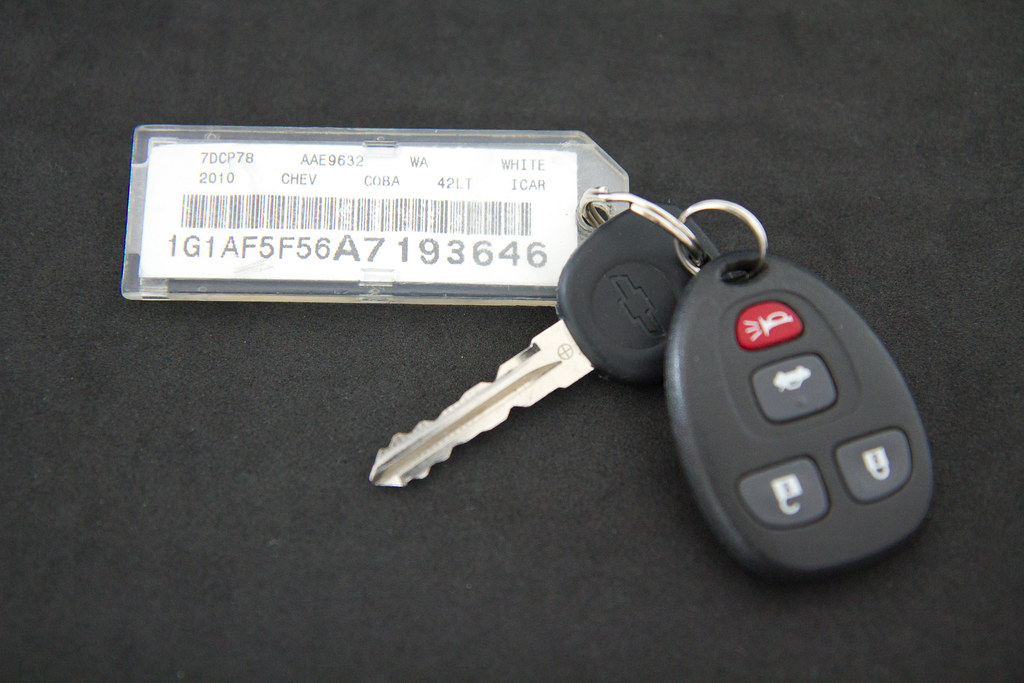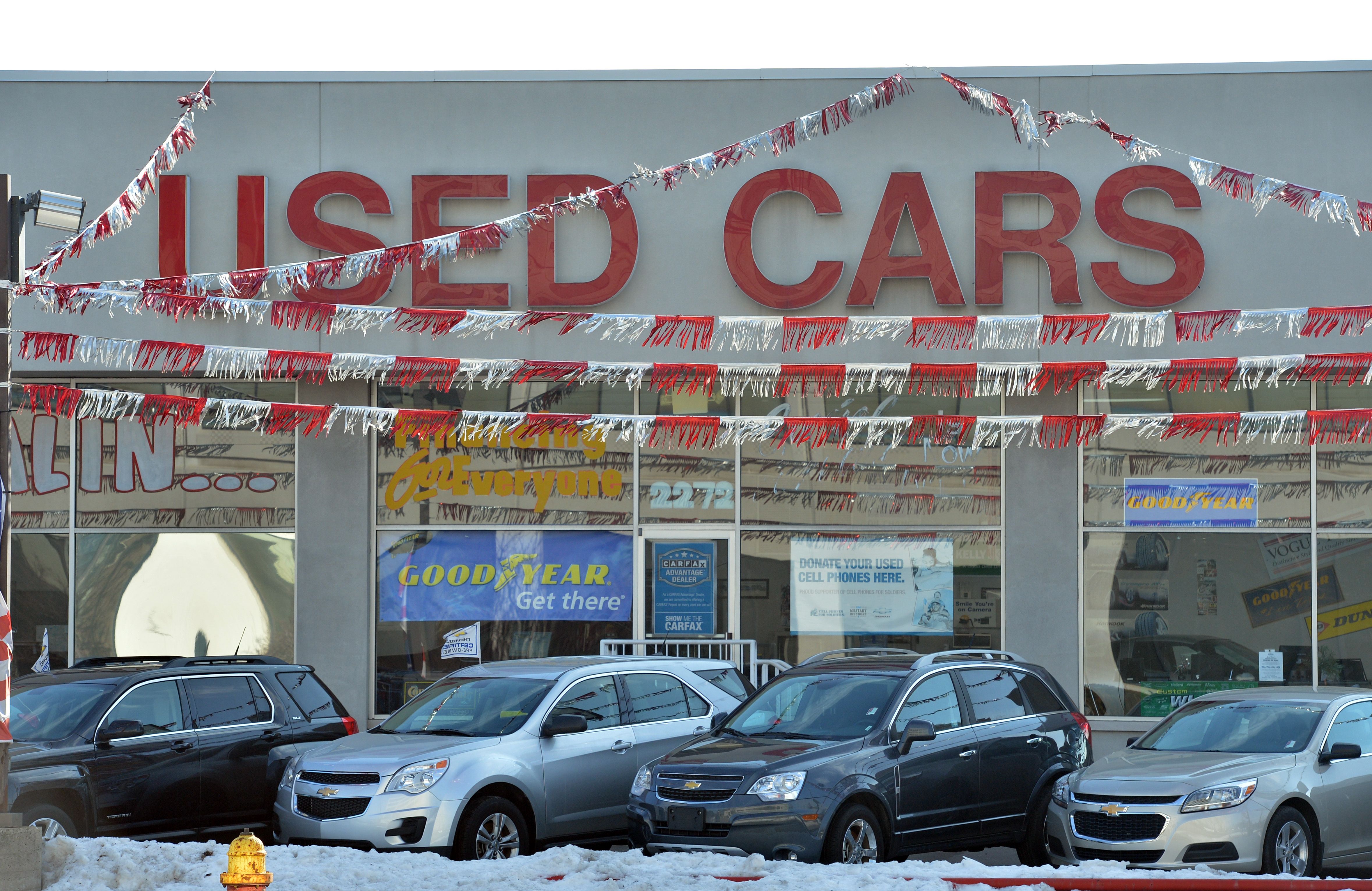
The journey of buying a car, often heralded as one of the most significant and exciting purchases Americans make, can unfortunately transform into a stressful ordeal fraught with hidden dangers. Every year, countless consumers find themselves entangled in a web of deceptive practices and outright scams perpetrated by unscrupulous auto dealerships. The Federal Trade Commission (FTC) estimates that these dubious tactics cost people in the U.S. an astonishing $3.4 billion annually and add a staggering 72 million hours to their time spent shopping for vehicles, highlighting the immense financial and personal toll these scams take.
Recognizing the pervasive nature and substantial impact of these illicit activities, the FTC has recently introduced the Combating Auto Retail Scams Rule, often referred to as the CARS Rule. This vital new regulation aims to ban misrepresentations about price, cost, and other crucial information, requiring dealers to provide the actual price consumers must pay for vehicles. It also mandates the disclosure that additional items like extended warranties are not obligatory and that the full monthly payment consumers are accepting must be stated upfront. While this rule is a significant step towards a more fair and honest marketplace, consumer vigilance remains the ultimate defense.
As consumers, arming ourselves with knowledge is paramount. Understanding the common scams and deceptive strategies employed by some car dealerships empowers us to navigate the purchasing process with confidence and protect our hard-earned money. This in-depth guide will shed light on some of the most pervasive and financially damaging car dealership scams, offering clear insights into how they work and, crucially, how you can avoid becoming their next victim.
1. **Yo-Yo Financing**
Yo-yo financing is a particularly insidious scam where a dealer initially leads you to believe your financing is final, often at an attractive low interest rate. They might accept your trade-in and down payment, then allow you to drive your new vehicle off the lot, creating a false sense of a completed transaction. This creates an emotional attachment to the new car and a disincentive to walk away, which is precisely what the unscrupulous dealer wants to achieve.
Days or even weeks later, the dealer delivers the unwelcome news: the financing supposedly fell through, and to keep the vehicle, you must return and sign a new contract, almost always with less favorable terms. The previous good deal evaporates, replaced by higher interest rates, longer loan terms, or increased monthly payments. Often, by this point, the dealership has already sold your traded-in vehicle, leaving you in an incredibly vulnerable position where your options are limited to accepting the new, unfavorable terms or being left without a car and potentially without your trade-in.
While yo-yo financing is illegal in every state, according to Paul D. Metrey, executive vice president for public policy with the National Automobile Dealers Association, tactics like conditional sales and spot deliveries—where you can take your car home before the loan is finalized—are legal. The FTC’s new CARS Rule, however, includes language specifically designed to protect consumers from these traps by forbidding dealers from misrepresenting transactions as final. This is particularly crucial for consumers with fewer financing options, such as those with bad credit or no credit profile, who are often targeted by these schemes.
To effectively avoid falling prey to a yo-yo scam, the most robust defense is to secure your auto loan before you even step foot in a dealership. Obtaining pre-approved financing from a bank, credit union, or online lender provides you with a clear budget and an established interest rate. Walking into a dealership with your financing already locked down gives you significant additional negotiation power, making it much harder for dealers to manipulate the financing terms later on.
Read more about: Unmasking the Deception: 9 Car Dealer Lies You Need to Know Before Buying Your Next Vehicle

2. **Bait and Switch**
The bait and switch is a classic deceptive tactic that preys on your desire for a good deal. It typically begins with an enticing advertisement for a car you love, priced surprisingly low, designed to pique your interest and draw you into the dealership. Filled with anticipation, you visit the lot, only to be met with disappointment when you discover that the advertised car is suddenly “no longer available,” or perhaps it was just sold moments before your arrival, or even worse, the price in the ad was a “typo.”
This advertised vehicle, the “bait,” was never truly intended for sale at that price; it was merely a hook to get you through the door. Once you are physically present, the dealer pivots, attempting to pressure you into buying a more expensive car. They might claim the advertised car was an anomaly, or that the better deals are on other, higher-priced models, skillfully redirecting your attention and budget towards less favorable options. This tactic wastes your valuable time and energy, turning an exciting prospect into a frustrating and potentially costly experience.
In another variation, the dealer might admit the car exists but insists that the advertised price was a mistake, then tries to sell you the same vehicle for a significantly higher price. This leaves consumers feeling deceived and cornered, often leading to purchases that exceed their initial budget and expectations. The essence of the bait and switch is to exploit your initial interest and presence to upsell you on something else, knowing that once you’re invested, you’re less likely to walk away.
To safeguard yourself against the bait and switch, always be skeptical of deals that seem too good to be true, especially for popular models. Before visiting the dealership, call ahead to confirm the availability of the specific vehicle and its advertised price. Get these confirmations in writing if possible. If you arrive and the advertised car is indeed “unavailable,” be prepared to walk away immediately. There are plenty of other dealers and vehicles available, and an honest dealer won’t resort to such manipulative tactics.
Read more about: Beyond the Sticker Price: Unveiling How Car Dealers Secretly Add Thousands to Every Sale Through Financing and Hidden Charges

3. **Hidden Fees / Junk Fees**
Imagine sitting down to sign the final paperwork for your new vehicle, only to discover that the total price tag is several thousand dollars more than you had expected or agreed upon. This sudden jump is often the result of hidden fees, which the FTC says cost people billions each year. While some fees, like registration charges and sales tax, are legitimate and unavoidable, many others are unnecessary charges tacked on by dealers simply to inflate the final cost of your vehicle, often disguised within the dense paperwork.
These “junk fees” can take various forms. For instance, you might find a “pre-delivery inspection fee” charged to you, even though such an inspection is a standard part of a dealer’s preparation for selling a car. Another common example is a recurring “service fee” every time you make your monthly payment. Sean Tucker, a senior editor for Kelley Blue Book, cites “nitrogen in tires” as his “all-time favorite one,” explaining that tests have shown it has “the exact same amount of nitrogen as in ambient air,” making it an entirely fake charge for a non-existent benefit.
The FTC’s new CARS Rule explicitly targets these practices, banning misrepresentations about price and requiring dealers to provide the actual price consumers have to pay. It also mandates that dealers disclose that additional items are not mandatory and state the full monthly payment consumers are accepting upfront. However, as Stacy Lupo of Winter Haven, Florida, found when she reviewed her lease paperwork and discovered an almost $4,000 charge for an extended warranty she had previously turned down, dealers can still try to sneak these items in, even after verbal rejection.
To protect yourself, meticulously review every line item on the contract before signing. Do not hesitate to ask for detailed explanations for any charge you don’t understand or recognize. Challenge fees that seem excessive or appear to provide no tangible value. If a dealer insists on adding a questionable fee, push back firmly. Remember, if you don’t understand something, don’t sign it, as Gregory Ashe, senior staff attorney with the Bureau of Consumer Protection at the Federal Trade Commission, advises.
Read more about: Luxury Car Owner’s Headlight Nightmare: Unmasking the Shocking Costs Behind Modern Automotive Lighting

4. **Mandatory Add-ons / Loan Packing**
Closely related to hidden fees, mandatory add-ons, also known as loan packing, involve dealers pressuring you to purchase additional products and services when you buy a car. While some of these items might genuinely be useful, many are not, or they can be obtained at a better price and quality elsewhere. The dealer’s primary goal with these add-ons is straightforward: to get you to spend more, thereby increasing their profit margins.
Common examples include extended warranties, gap insurance, rustproofing, tire rotation, and various service contracts. Dealers might also push for cosmetic treatments like ceramic coatings to protect your paint job or VIN etching on your windshield for theft protection. The FTC also highlights add-on items that provide no value at all, such as duplicative warranties, software and audio subscriptions for cars that can’t support them, or service contracts for oil changes on electric vehicles that obviously do not require motor oil. Stacy Lupo’s experience with an extended warranty she had declined but was still charged for perfectly illustrates this scam.
The danger of these add-ons lies in how quickly they accumulate, pushing the total cost of your car far beyond what you intended to pay. If these services are wrapped into your loan, you’re not just paying for the add-on; you’re also paying interest on it over the life of the loan, significantly increasing its overall expense. The new CARS Rule is designed to make this process more transparent, requiring dealers to get your “express, informed consent” before any additional charges for products or services are added to your bill.
However, dealers may still attempt to circumvent these rules, making consumer awareness critical. Consumer Reports advises thinking twice before agreeing to add-on services. For instance, you can often get a superior quality ceramic coating at a detail shop for less, and VIN etching kits are available for a fraction of what a dealer charges. Instead of expensive extended warranties, Consumer Reports recommends purchasing a reliable car and setting aside the money you would have spent on the warranty for any future repairs, providing a more financially sound approach.
Read more about: The ‘Free’ Test Drive Illusion: Unmasking 14 Hidden Costs Dealers Don’t Want You to Know When Buying a Car

5. **Title Washing**
Title washing is a deceitful practice used by some dealers to conceal a used car’s true history, effectively making a problematic vehicle appear legitimate and pristine. This scam involves manipulating or altering a car’s title to hide significant issues such as damage from major accidents, flood damage, or even salvage status. The unsuspecting buyer is then left with a car that seems to be in good shape but harbors hidden problems that will inevitably surface and cost them dearly.
Dealers engaging in title washing might physically alter the vehicle’s title documents, or they could order a new title without disclosing the car’s checkered past. Another common tactic involves relocating the damaged vehicle to a state with more relaxed title laws, where it’s easier to obtain a clean title that doesn’t reflect its previous incidents. For example, you might buy a used car that looks fine, but after taking ownership, it ends up in the shop for extensive electrical problems, with your mechanic also noticing significant corrosion, possibly indicative of flood damage that was never disclosed.
Cars with a “checkered history” are not just more expensive to maintain; they can also pose serious safety issues. Structural damage from accidents, water damage affecting electrical systems, or undisclosed repairs can compromise the vehicle’s integrity and reliability. These hidden defects lead to unforeseen and often costly repairs, ultimately leaving the buyer with a depreciating asset that becomes a financial drain and a potential safety hazard.
To avoid becoming a victim of title washing, conducting a thorough Vehicle Identification Number (VIN) search is absolutely essential. A VIN search can reveal a car’s full history, including past accidents, flood damage, and previous ownership. Additionally, insist on an independent inspection by a trusted mechanic before finalizing any purchase. A professional can identify signs of hidden damage or repairs that might indicate a washed title, providing you with critical information to make an informed decision and walk away from a risky purchase.
Read more about: The Unseen Terrors: How the Making of ‘Seven’ Challenged Hollywood and Its Stars, Including Morgan Freeman

6. **Odometer Fraud**
Odometer fraud is a classic scam where a dealer illegally rolls back a car’s odometer to make it appear as though the vehicle has logged fewer miles than it actually has. This manipulation significantly inflates the car’s perceived value, as lower mileage generally commands a higher price. Buyers, believing they’re getting a great deal on a used car with just, say, 20,000 miles, are actually purchasing a vehicle with substantially more wear and tear, and a much shorter lifespan than advertised.
The financial impact of odometer fraud is staggering. The National Highway Traffic Safety Administration estimates that consumers buy more than 450,000 cars with false odometer readings every year, costing them a staggering $1 billion annually for extra repairs and maintenance. These costs arise because the car’s actual mileage means it’s due for more frequent and extensive maintenance, or its components are simply closer to the end of their operational life, leading to unexpected breakdowns and expenses.
One tell-tale sign that might indicate odometer fraud is inconsistency between the reported mileage and the car’s condition. For example, if a car with supposedly very low mileage already shows signs of significant wear on the brake pedal, steering wheel, or seat upholstery, or doesn’t have its original tires, it should raise a major red flag. These discrepancies suggest that the vehicle has been driven far more than the odometer indicates.
To protect yourself from odometer fraud, it’s crucial to perform a comprehensive VIN search. This search can often reveal inconsistencies in mileage reporting from previous inspections or sales. Always conduct a thorough inspection of the vehicle, looking for wear and tear that seems inconsistent with the displayed mileage. Additionally, check the car’s maintenance records for mileage entries. If anything seems suspicious or doesn’t add up, walk away from the deal; the potential costs and headaches far outweigh any perceived savings.
Read more about: 15 Crucial Reasons Why You Should Think Twice Before Buying a Used Car from a Dealership

7. **Buy-Lease Switch**
The buy-lease switch is a deceptive tactic where dishonest car dealers trick consumers into signing a lease agreement when their actual intention is to purchase a vehicle outright. This scam preys on buyers who might be less familiar with the intricate details of automotive contracts, relying on vague language and verbal assurances to mislead them. The consequences of such a switch can be severe, fundamentally altering a consumer’s ownership expectations and long-term financial commitments.
In this scenario, a buyer might agree to purchase a car, believing they are securing full ownership. However, upon reviewing the contract, they might notice the word “lease” appearing in several places, or the terms might seem unusually vague regarding ownership transfer. When questioned, the dealer might quickly assure the buyer that, despite the wording, the car will indeed be theirs at the end of the term, or that the document is just a standard form that covers both options, effectively downplaying or outright misrepresenting the legal implications of a lease agreement.
The critical distinction, which is often obscured, is that a lease agreement means you never actually own the vehicle. Instead, you are essentially renting it for a fixed period, typically with mileage restrictions, wear-and-tear clauses, and significant penalties for early termination. At the end of the lease, you are usually required to return the car or purchase it at its residual value, which might be much higher than anticipated. This leaves the buyer without the asset they thought they were acquiring and tied into different financial obligations.
To avoid falling victim to a buy-lease switch, it is imperative to read every single word of your contract with extreme care, especially focusing on sections related to ownership, terms, and conditions. If you see the word “lease” anywhere in the contract, no matter what the salesperson says, it is unequivocally a lease agreement. Do not rely solely on verbal assurances; what is in writing is what matters legally. If you intend to buy, ensure the contract explicitly states it as a purchase agreement and that all terms reflect outright ownership before putting your signature on any document.

8. **Military Scams**
The brave men and women of our military unfortunately become targets for unscrupulous car dealers who exploit their trust and financial inexperience. These predatory schemes leverage service members’ steady income and unique circumstances, such as frequent relocations, for illicit gain. The FTC has actively engaged in initiatives like the VSAFE task force to protect military and veteran communities from such deceptive practices.
Dealers employing military scams often fabricate affiliations with the U.S. military to build a false sense of trust and camaraderie. They use these deceptive connections to push unfair deals. A common misleading tactic involves assuring service members that a vehicle and its loan can easily transfer to any new duty station, even when loan terms strictly prohibit out-of-state or international relocation.
The FTC’s new Combating Auto Retail Scams (CARS) Rule directly addresses these tactics, specifically prohibiting dealers from misrepresenting any affiliation with the military. This regulation is a crucial step in preventing dealers from using false patriotism as a smokescreen for overcharging or imposing unfavorable loan terms on those who serve our country.
To protect yourself or a loved one in the military, always be skeptical of dealer claims of military affiliation and verify them independently. Most importantly, meticulously scrutinize all loan documents for clauses regarding relocation and vehicle transferability. Ensure the contract explicitly allows for cross-country or international relocation if your orders require it, and never rely solely on verbal assurances.
Read more about: From Everyday to Elevated: 15 Smart Style Swaps to Instantly Transform Your Look and Boost Your Confidence

9. **Entrapment Tactics**
Another alarming tactic some aggressive car dealers employ is physical entrapment, designed to wear down a buyer’s resolve and force an unfavorable purchase. This scam often starts subtly: you visit a dealership for a trade-in appraisal, and the salesperson requests your car keys. While seemingly routine, this can quickly become a coercive situation.
Once your keys are in their possession, if you decide against a purchase, the dealer might refuse to return them. They may claim the keys are “misplaced,” with a manager, or needed for further discussion. This deliberate withholding creates a high-pressure environment, making it difficult to leave and giving the dealership a psychological advantage. Their goal is to exhaust your patience, hoping you’ll capitulate to an undesirable deal.
To avoid falling victim, exercise extreme caution about surrendering your car keys unless fully committed to a purchase. If a dealer insists on holding them, consider it a significant red flag. Should you find yourself in this situation, firmly demand your keys back. If they are withheld, be prepared to call authorities or simply walk away from the premises without further engagement.
Read more about: Unmasking History’s Hidden Horrors: 14 Figures Whose True Evil Emerged Posthumously

10. **Auto Loan Modification Scams**
For consumers struggling with car loan payments, promises of lower monthly installments can be very enticing. Unfortunately, this vulnerability is frequently exploited by unscrupulous companies offering “auto loan modification” services, which often lead victims into deeper financial trouble rather than providing relief. These scams target individuals seeking a lifeline but deliver only further distress.
Fraudulent companies typically demand steep upfront fees or request unusual, untraceable payments like money transfers or gift cards. Unlike legitimate lenders, these scammers often bypass credit checks, as their goal is to extract money, not to qualify you for a better loan. They commonly pressure consumers to sign contracts quickly, without allowing sufficient time for careful review, making “too good to be true” promises.
Gregory Ashe of the FTC notes these scams are akin to mortgage loan modification schemes, promising to prevent repossession and lower payments. Scammers might even instruct victims to pay them directly instead of their actual lender. However, legitimate lenders negotiate directly; while they may extend terms or defer payments, significant interest rate reductions are unlikely, according to Ashe.
The FTC advises contacting your lender directly and immediately if you face payment difficulties, as legitimate lenders are usually willing to work with you. Always ignore offers of dramatically lowered car payments from suspicious third-party companies, especially those demanding upfront fees or unconventional payment methods. Your direct lender is the only reliable source for legitimate loan modifications.
Read more about: Don’t Be Fooled: The Most Ridiculous Scams Targeting Millions of Americans Right Now

11. **Negative Equity Scams**
“Negative equity,” or being “upside-down” on an auto loan, means owing more on your vehicle than its current market value. This situation often becomes a basis for scams when dealers handle trade-ins deceptively, particularly when consumers aim to roll existing negative equity into a new car purchase. The FTC has taken administrative action against multiple dealerships for violating Truth in Lending Act standards in this area.
Deceptive dealers frequently misrepresent how they handle a trade-in’s outstanding balance. They claim to “pay off” the previous loan, but fail to explicitly state that this negative equity is simply added to the principal of the new car loan. Many consumers only realize this significant increase in their new loan’s total cost after signing the financing paperwork, leaving them with an unexpectedly larger debt.
Gregory Ashe, a senior staff attorney with the FTC, stresses the importance of meticulously reading all paperwork before signing, as “it doesn’t matter what’s said. It matters what’s in writing.” This advice is crucial in negative equity situations where verbal assurances can starkly contrast with contractual terms. If any part of the document is unclear, Ashe’s simple guidance is clear: “If you don’t understand something, then don’t sign it.”
To protect yourself, thoroughly review all loan documents, ensuring the price matches your agreement. Treat your trade-in as a distinct transaction with a clearly defined value. If you choose to roll over negative equity, demand a precise explanation from the finance manager on how it impacts your new loan’s balance, interest, and monthly payments before you finalize the deal.

12. **Discriminatory Pricing Based on Appearance**
A fair marketplace dictates that a vehicle’s price should stem from objective factors like its condition and market value, not from a buyer’s personal characteristics. Yet, the illegal and deeply unethical practice of discriminatory pricing persists, where individuals are overcharged based on their race or appearance. The FTC explicitly categorizes such practices as both unfair and unlawful.
This form of discrimination is not merely theoretical; it has tangible impacts on consumers. The FTC has pursued cases against dealerships for these egregious acts, specifically noting instances where auto dealerships in Rhinelander, Wisconsin, allegedly overcharged customers based on their looks. This highlights that such biases can manifest in real, insidious financial burdens.
The subtle nature of discriminatory pricing means that victims may not even realize they are being targeted. Without transparent pricing and lending practices, it becomes challenging to determine if one is receiving a fair deal compared to others. This systematic disadvantage erodes trust and can lead to significant financial hardship for those unfairly singled out.
To ensure you receive a fair deal and avoid discriminatory pricing, arm yourself with knowledge. Secure pre-approved financing and conduct thorough market research before engaging with any dealership. Be ready to walk away if you perceive unfair treatment or if pricing seems inconsistent with your research. Empower yourself with information and insist on transparent, justifiable pricing for every aspect of the transaction.

13. **Used Car Scam Red Flags**
Beyond specific fraudulent schemes, the used car market presents numerous general “red flags” demanding consumer vigilance. Recognizing these warning signs early can prevent substantial financial losses and emotional distress. A primary red flag, for instance, is a vehicle priced significantly below its market value; what appears to be an unbeatable deal is often a calculated ploy to steal your money.
Be wary of pushy sellers who create a false sense of urgency, claiming tight deadlines or immediate relocation. They frequently demand quick payment in cash, gift cards, or other untraceable methods, ensuring that once funds are transferred, all contact ceases, and recouping your money becomes impossible. Such high-pressure tactics are a strong indicator of fraudulent intent.
Vehicle Identification Number (VIN) issues constitute another critical red flag. Scammers may try to sell cars with outstanding liens, meaning a balance is still owed, which would then transfer to you. More dangerously, VIN plates might be swapped after major incidents like floods, theft, or total loss, effectively concealing the vehicle’s true, often catastrophic, history. A tampered VIN indicates monumental risk.
Furthermore, be vigilant for fake or duplicate online listings. A quick reverse image search or online query of the description might reveal the same car listed multiple times with varying prices or contact details. These duplicate listings are a common hallmark of scams, designed to ensnare a wide net of unsuspecting buyers.
To protect yourself, always perform a comprehensive VIN search and an online reverse image search of any advertised vehicle. Insist on a thorough test drive and confirm the seller’s identity before proceeding with any transaction. Steer clear of any seller who is overly rushed, claims imminent relocation, requests upfront payment, or demands quick payment through unconventional means.
**Empowering Your Purchase: What to Do If You’re Scammed**
Even with the sharpest vigilance, some consumers may still fall victim to deceptive dealership practices. While realizing you’ve been taken advantage of can feel overwhelming, especially after signing documents and driving your new car home, remember that you are not entirely without options. Though immediate legal recourse might be challenging in some jurisdictions, practical steps can often lead to a resolution.
Your initial defense should involve direct, calm communication, not with the salesperson, but with dealership management. Address the sales manager or, ideally, the general manager respectfully, appealing to their sense of fairness. Present the issue clearly and offer a reasonable solution you believe would resolve the problem. As one expert with 42 years in the car business advised, a friendly, solution-oriented approach is far more effective than anger or threats.
If discussions with management are unproductive, escalate your concerns to the dealership’s ownership, such as the managing partner or dealer principal. These higher authorities are often motivated to resolve customer issues promptly to protect the dealership’s reputation and prevent further complications. Leveraging this fact can frequently lead to a desired resolution.
Should direct negotiation fail, several regulatory avenues remain. File a grievance with the Better Business Bureau (BBB), your state’s Consumer Protection Office, or the Attorney General’s office. The BBB often facilitates quicker resolutions, while state offices may require a pattern of abuse before taking formal action. Additionally, leveraging social media with a factual, respectful online review can prompt management to make amends, safeguarding their online reputation.
Read more about: 15 Crucial Reasons Why You Should Think Twice Before Buying a Used Car from a Dealership
Ultimately, preventing scams is always preferable to resolving them. CarEdge’s free “Deal School” offers a wealth of insider knowledge, empowering consumers to navigate their car-buying journey with confidence. Arming yourself with education, understanding your rights, and recognizing common pitfalls are the most effective strategies for a secure and informed vehicle purchase.




